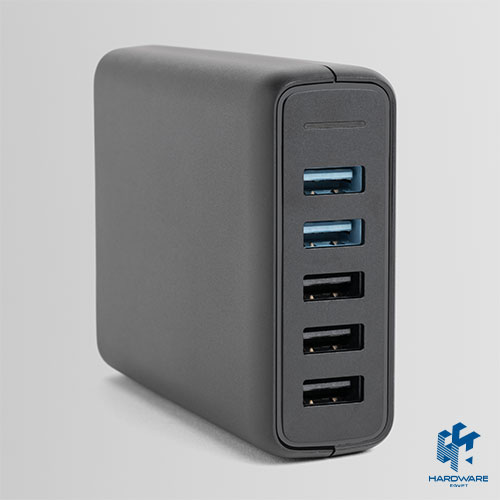Power Supplies – The Backbone of Reliable Electronics:

Any tech gadget you see around, it needs a power supply to keep going. You know, from laptops sitting on your desk to those big gaming rigs, even factory equipment or all the smart stuff in your house. Power supplies just work away in the background like unsung champs. Folks hardly ever notice them. Not until there’s a glitch or it fails on you. So if you’re looking to build a new setup or swap out an old one, questions pop up right away. The thing is, we’ll walk through the usual ones here. That way you can choose what fits without second guessing.
What exactly is a Power Supply and how does it work?
The thing is, a power supply basically takes the electricity coming from your wall socket, which is AC, and turns it into the DC current and voltage that your gadget actually requires. Your computer’s motherboard wouldn’t run without one of these. Same goes for a gaming console or even a router, they’d just sit there dead. These days, power supplies do more than that though. They steady the voltage to shield your stuff. Surges or drops in power, or those quick spikes, they could wreck the delicate parts inside. So the supply keeps everything safe from that kind of trouble.
How do I know what kind of Power Supply my device needs?
People always ask about this stuff right away.
You need a power supply that fits your device’s voltage and wattage needs pretty much exactly.
Take a gaming PC that is high performance for instance.
It usually calls for something in the 650W to 850W range.
A basic office desktop though.
- That can get by with just 350W to 500W.
- Still you have to look at the connectors too.
- Some gadgets stick with regular plugs.
- Others kind of require special adapters.
- Like printers or routers and cameras sometimes.
Understanding wattage and efficiency:
When it comes to picking a power supply, a couple things really jump out.
- Wattage is one: It basically sets how much power the whole thing can push out. You want to grab a unit with 20, 30 percent extra capacity over what you need right now. That leaves room for upgrades down the line.
- Efficiency counts too: Go for ones with 80 PLUS labels, you know, Bronze level or Silver, Gold, even Platinum. The better the rating, the less power gets thrown away. Your electricity bill stays lower, and it does not heat up as much.
Why is the quality of Power Supplies so important?
People often overlook just how important power supplies really are.
A cheap one or something low quality ends up delivering power all uneven, you know.
That leads to those random crashes popping up.
Or worse, data gets lost for good.
Hardware can even take a hit and get damaged.
The thing is, putting money into a solid power supply brings real stability over the long haul.
Safety and reliability:
Good units come with protections built right in against overvoltage, overcurrent, and getting too hot.
They just shut down nice and safe. That way your pricey electronics don’t end up fried or anything.
They hold up longer too. You won’t be swapping them out nearly as much.
Are Power Supplies only for computers?
People always focus on PC power supplies. They get all the buzz. But there are these specialized ones out there for LED lighting. For network devices too. Security cameras, 3D printers, even medical equipment.
In industrial spots, power supplies handle the machinery. They keep production lines running smoothly.
The thing is, picking the right type matters a lot. Linear ones, switching types, or uninterruptible power supplies like UPS. It changes everything for safety and performance.
How do I install or replace a Power Supply safely?
People often worry about this stuff when they are doing it for the first time.
If you are upgrading a desktop PC, the cases tend to have a pretty standard layout. The old unit just unscrews and swaps out for the new one.
Always unplug the device first. And make sure to discharge any static electricity before you touch the components.
For more complicated equipment or those high-voltage industrial setups, it is usually smarter to have a certified technician take care of the installation.
What happens if I use the wrong Power Supply?
Using the wrong power supply can mess things up. It is not just about wasting energy. That stuff can actually be dangerous in some ways. If you go with too few watts, your device does not get the power it needs. Crashes happen. Failures pop up too. On the other hand, too much voltage or some cheap current quality will overheat everything. It might even burn out those delicate parts inside. You really have to check the specs every time. Stick with brands you can trust. That is the smart move. It pays off for better performance. Safety comes with it as well.
How do modern Power Supplies improve energy savings?
Energy costs keep climbing these days. Customers ask a lot about efficiency.
Modern power supplies rely on advanced switching technology. They come with 80 PLUS certifications too. This setup means they turn less energy into wasted heat.
You end up with lower electricity bills at home or in your business. It helps with environmental sustainability as well.
The thing is, over the full life of your device, that efficiency adds up to real savings on money.
Are there special Power Supplies for servers and data centers?
Servers and data centers really need power supplies that handle 24/7 uptime without a hitch.
These things often have redundant setups. You know, dual units running right alongside each other.
They include hot-swappable modules too. That way maintenance stays simple and quick. Plus higher wattage to manage those heavy workloads.
If you run a business or host critical applications, picking the right enterprise-grade power supply counts just as much as choosing the server.
How do I know if my Power Supply is failing?
Early signs of a failing power supply show up in stuff like random restarts. You might hear unusual noises too. Like that whining from the fan. Or even catch a burning smell sometimes.
These things basically mean the power supply just can’t keep up with stable power anymore.
Swapping it out early helps dodge damage to your other parts. It stops my downtime too.
That’s super important for businesses that need things running non stop.
Where can I buy quality Power Supplies with expert guidance?
Picking the right supplier is just as big a deal as the product itself.
Over at Hardware Egypt, we do more than hand over some boxes. We actually sit down and figure out the best power supply that fits your device, your workload, and what you can spend.
You could be a gamer chasing that top performance, or maybe running a small business and needing to keep data safe, or even managing a factory with all those heavy machines. Our team makes sure you end up with something reliable. It keeps everything running without a hitch.
Conclusion: Choosing the right Power Supply pays off
A good power supply does more than sit there plugged in.
It makes sure your stuff stays safe and runs steady, all set to do what it’s supposed to. Over at Hardware Egypt, we have helped a bunch of folks, thousands really, find the power supplies that fit, no matter if it’s for gaming rigs or servers at work or just home setups.
The thing is, putting a little extra cash into a solid one upfront usually keeps you from shelling out way more down the line.
You are thinking about upgrading your setup.
Do not skip over that key part holding it all together.
Pick a power supply that handles what you need right now and keeps up later on.
FAQs about Power Supplies:
-
How long does a typical Power Supply last?
A decent power supply unit can hold up for about five to seven years. Sometimes it goes longer than that. You just need to keep it in a spot that’s clean and not too hot.
-
Can I use a higher-wattage Power Supply than my device requires?
Yeah. Your devices pull only the power they actually use. So going with a higher wattage one means you get some extra room to breathe.
-
What’s the difference between modular and non-modular Power Supplies?
Those modular power supplies are nice because you can hook up just the cables you need. That helps with better air flow and keeping things tidy inside. The non modular versions come with every cable stuck in place already.
-
Do I need a UPS (Uninterruptible Power Supply) for my computer or server?
For dealing with power failures or those quick blackouts, you really ought to grab a UPS. It buys you a bit of time to save what you’re working on and power down without any hassle.

